Cáritas Jávea visits two samples of Koopera in Valencia, a large social project of Cáritas at the state level, which has a textile treatment plant in Riba-roja and seven second-hand shops in the Valencian Community.
Behind the clothing containers there is a great social project of Caritas called koopera, whose mission is the inclusion of the most vulnerable people, through activities of environmental services, reuse and recycling, sustainable consumption, training, etc. To achieve this, the project uses the waste from our
civilization.
The textile industry is the second most polluting in the world and the work of Koopera, in its two plants in Riba-roja (Valencia) and Munguía (Vizcaya), prevents 18.000 tons of textile waste from ending up in landfills each year.
Only Koopera Mediterránea in Valencia recycles more than 5000 tons of garments per year, part of which is resold in second-hand stores Koopera Store in the Region, Teruel, Albacete and Almería, through the intermediary management of Arropa Cáritas. "Each clothing that is donated and processed in Koopera generates 1 minute of social employment," says Ana Belén Cabrera.
Buying socially and environmentally sustainable fashion in one of the 32 Koopera Stores that exist, in Valencia alone there are 7, "generates social employment," says Itziar Ituño. "Miropa says that I have the power to change things. She makes me strong and whoever made it possible to wear her now."
In the textile treatment plant
“Our business activity is focused on a circular economy model, says Emma, a technician at the Koopera Medierránea plant, based in Riba-roja del Túria. Most of the jobs, almost 50%, focus on the activity of reuse and recycling that combines social and environmental purposes. The donation of clothes through the Caritas Koopera containers allows the Koopera Social Network to create more than 60 new jobs a year. Every three containers of clothes enable 1 social employment. Only in the Valencian Community there are more than 698 clothing containers. In Valencia, Koopera Mediterránea maintains 47 jobs, of which 23 are insertion profiles.
These people complete cycles of up to three years with an insertion contract during which they are trained on a personal and professional level, always accompanied by specialized technical personnel. Once the cycle is completed, they are helped to look for work with a standardized contract, which is achieved by 60% of the participants. the rest follow
for a short period of training until they get a decent job to break the cycle of poverty Of the total tons managed, 60,5% are reused locally and internationally, 30,7% are recycled, and 8,8 .XNUMX% is transformed into energy by a process of cogeneration of mechanical energy, so that the resulting residue is zero.
In the immense Riba-roja warehouse, everything is automated, from the arrival of the textile from the transfer centers to unloading and recycling, where the garments (clothes, footwear, accessories) are selected, according to the state of the same; The treatment process includes the sanitization of the garments, their preparation, packaging and recovery, depending on the destination.
Reusable garments can have two destinations: return to use through neighborhood stores, the Koopera Store or have a destination in an international project, such as those that Koopera manages in Chile, where it has created its own project, and in Romania.
Koopera Store
Arropa Valencia, a job placement company promoted by the José María Haro INTRA Foundation, which in 2002 created the first sustainable fashion store in Valencia through its volunteer work, maintains its own management point in the Riba-roja warehouse second-hand clothes for the shops of the Region, Castilla La Mancha and Andalucía, to which they arrive after a second cleaning, with the fixed price and in accordance with their orders.
The Koopera Stores, like the ones in Valencia in Ruzafa, Torres Serrano, Benimaclet, Rodríguez de Cepeda, Primat Reig, in Castellón or in Alcoi, in Alicante, are a modern street-level store model, integrated into its neighborhood and that stimulates the economy of the neighborhood. Koopera Store has just created a loyalty card based on discounts
called Koopera Club. That is, like all cards. But this one also invites you to spend with austerity. “Having to have, just because, to change? Thus, little by little, the 45 kilos of textile waste that each Spaniard produces per year on average are generated”, says Mikel, Koopera and recycling.
Around 30% of Koopera's textiles are likely to be recycled in different projects by other companies. In the case of Riba-roja, Inditex has a project aimed at analyzing and classifying garments in poor condition in order to reuse their spinning. Between 5 and 10% of the clothing sold by Inditex comes from
recycled garments. The Join Life label is the badge shown by the sustainable garments of this international textile company and under this ecological marketing concept hides a material made from synthetic fibers from plastic, organic (cotton) or recycled bottles. But Inditex is not the only fashion firm interested in making sustainable fashion. The Koopera Social Network also collaborates with Mango and Skunfunk to create more ecological clothing from organic and recycled materials.
Cooperation is in the hallmark of Koopera
Koopera, a social project of Cáritas, houses within it a group of entities from the Third Sector, mainly social initiative cooperatives and insertion companies such as Arropa, committed to making it possible for the economy to be at the service of people, in the commitment to reuse and recycling as a means to create employment, minimize waste, support development cooperation projects in other countries, without forgetting those who need it most in our environment.
Today, the Koopera Network in Spain encompasses 11 Insertion companies, 12 Social Initiative cooperatives, 1 Foundation, 10 Cáritas Diocesanas, 2 international projects in Chile and Romania (to which clothes are sold by the kilo), more than 500 volunteers from Cáritas, 120 collaborating companies, including Inditex, Mango and Skunfunk. The Koopera Network belongs to MODA RE- a common project of Caritas for social change.
The Koopera Network has the support of public entities and administrations such as the Generalitat Valenciana,
Works, Public Employment and Training Service of the Valencian Community, the Government of Cantabria, the Junta de Andalucía, the Basque Government, the Provincial Council of Bizkaia, the Government of the Principality of Asturias or the Diputación de Almería, to name just a few.

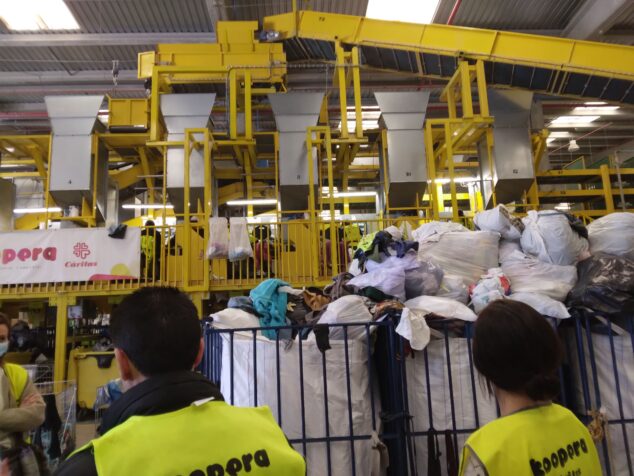
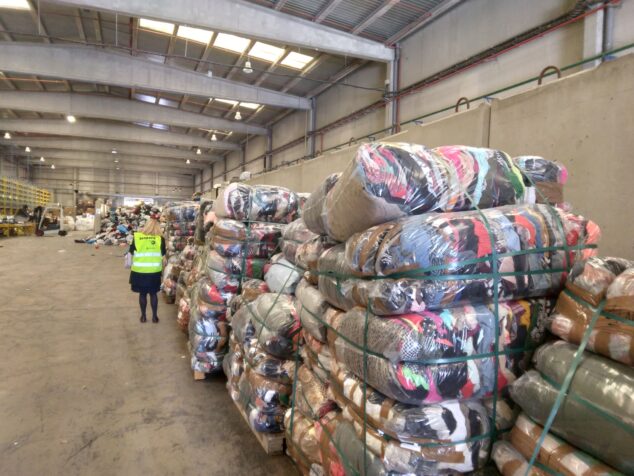
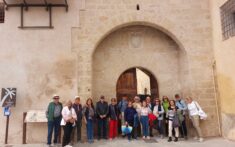
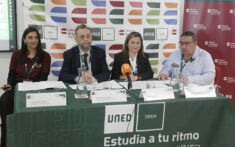
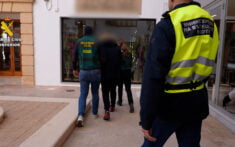


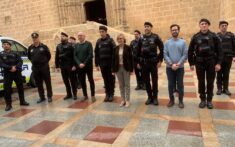
On the one hand volunteers from Cáritas and on the other companies such as Inditex, Mango, Skunfunk. How exactly do these companies collaborate? Especially Inditex? Everything they do is voluntary too? Or some get rich while making others work as volunteers.
Good question, I'd like to know that too.
Excellent article! It is very good to know all this.